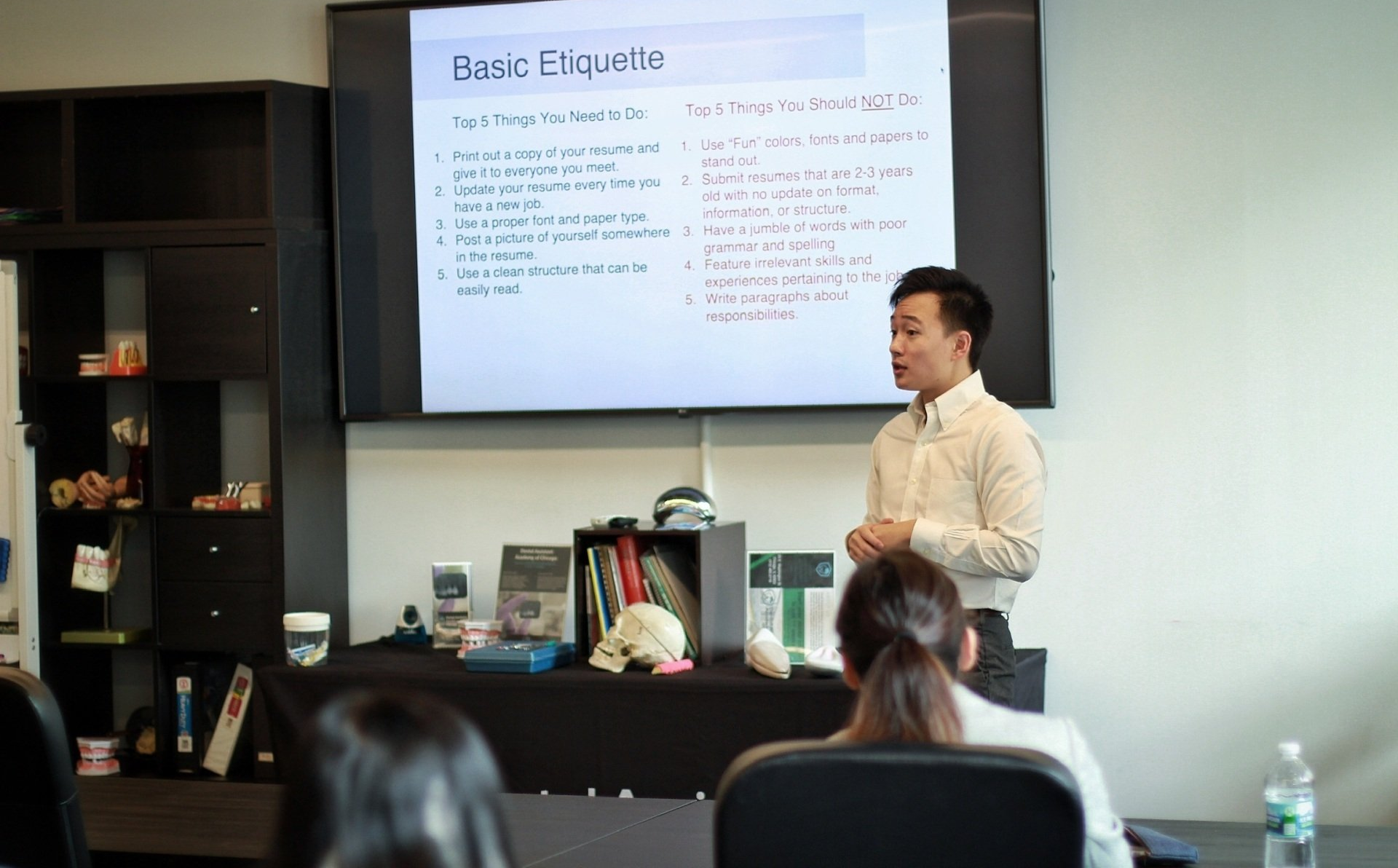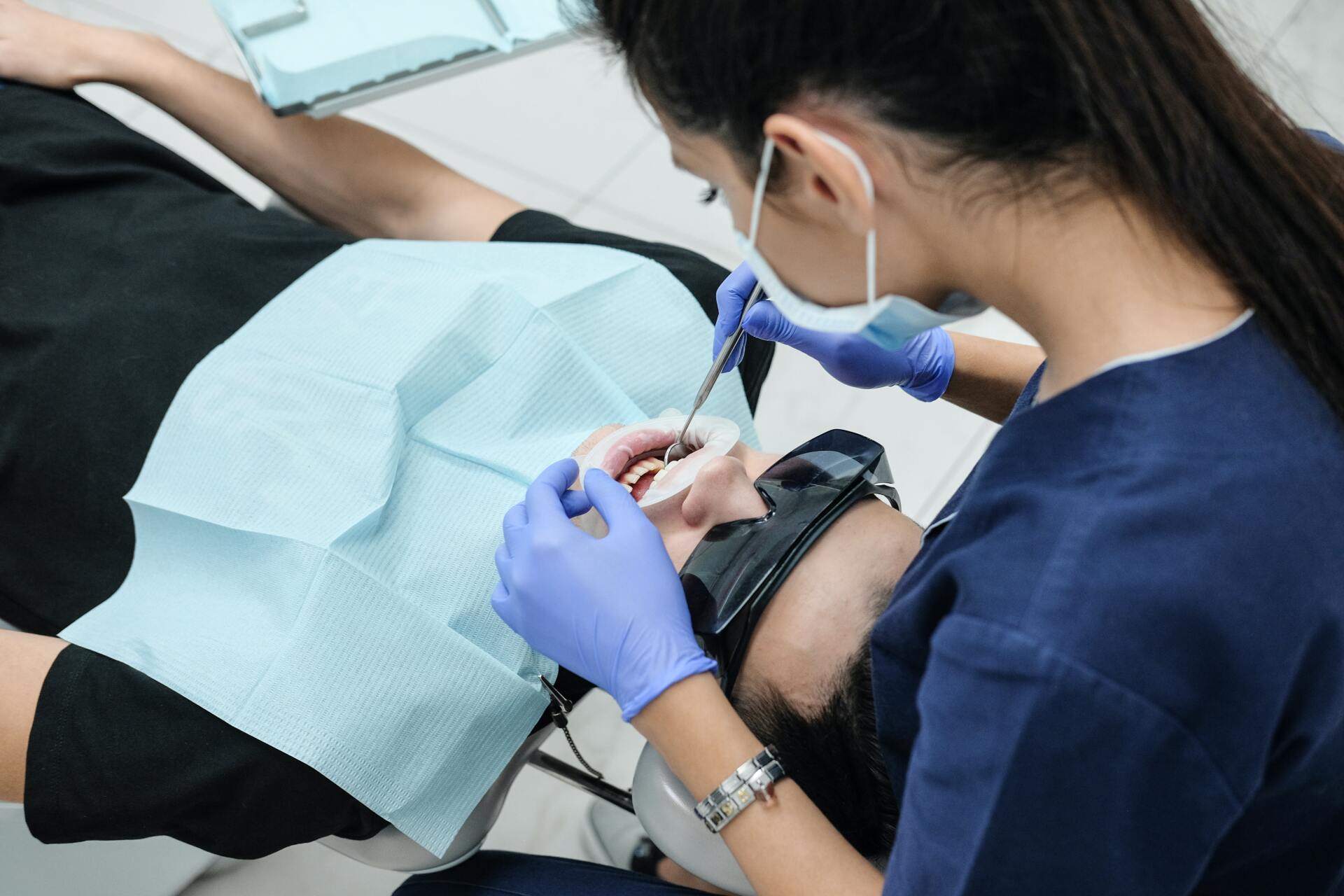
Interviewing for a job in dental is a little different than most professions.
There are a few more steps that are taken in order to ensure that you are not only qualified, but also a good fit for the practice. Not only will most dental offices require a sit down interview, many prefer you do a working interview in order to assess your skills.
There are a few “good rules of thumb” that are good to know for any interview process, but these are a couple extra that can put you over the top when it comes to a working interview.
RESUME
This may seem obvious, but to many it’s not. It is not only important to have a resume but there are a few things you can tweak to make the interview process smoother. First of all, you need to update it. It can be confusing to employers when you have large gaps in your resume. The less time figuring out where you worked or what you did means more time for you to show them why you want to work there. Next, only put relevant information that you know you can confidently back up. This will help the interview go smoother and the conversation will be more lively. Just because your resume is short does not mean you are unqualified.
Most likely, your possible employer will only be looking for relevant information anyways. If you have any specific questions or are looking for general help, our office also provides career training resources that have proven successful for many of our clients.
RESEARCH
Before you go into an interview, you should know everything about the practice. Who the dentist is, how many people work there, what kind of procedures do they do, are they privately or corporately owned. These are just some of the things you should know. The more knowledge you show about the practice, the more invested you will appear to the interviewer.
Additionally, do not be intimidated if you do not meet every single requirement that is listed in the job post. A lot of posts are just recycled from other places and most of the time the office will be willing to work with you if you show promise. However, there are limits. Experience and languages spoken are two things that many offices care about. Don’t be surprised if the job post lists Spanish as a requirement and you are questioned about it in the interview.
INTERVIEW YOURSELF
There is no reason to be surprised by the questions being asked when you get into the office. The calmer and more prepared you are, the more impressed the interviewer will be. There are common questions that are asked in interviews all over the internet. You can either have a friend ask you them or just speak through the answers yourself. Either way, thinking is not enough- you need to be able to communicate your answers verbally.
Some of the most common questions are:
- Tell me about yourself.
- Why did you choose to be a dental hygienist/assistant?
- How long have you been practicing?
- How would you deal with a difficult patient?
These are just a handful of examples. Check out some other websites which have long lists of just about every possible question imaginable.
ASK QUESTIONS
Almost every interview ends the same way, with the interviewer asking if you have any questions for them. This is where you can stand out from the other applicants. By doing research beforehand, you should have a few questions prepared. This shows the person interviewing you that you are interested about the practice and what they do. It is also more engaging. The more the interview is like a back-and-forth conversation, the better.
WORKING INTERVIEW
This is a great way to show your skills. That being said, it is also a way for you to see if the office is actually a good fit for you. You will be able to see what the general flow is like, how the dentist acts, and what your general responsibilities will be. Don’t feel too pressured! The office knows that you are not familiar with their system. It is simply more of a way to see how well you work with people and making sure your talents on paper translate to the practice. The duration of these interviews varies depending on the office. Some only last a few hours while others will ask you to come back multiple times. It is not a bad thing if your interview only lasts two hours. That may just mean that the practice was super impressed with you!
Regardless of how long it lasts, you should be compensated for your work. Offices are legally required to pay you, but not necessarily at a hygienist/assistant rate- just minimum wage. Not that this should be a deal breaker, but it is something that you may want to keep in mind. If you find yourself getting anxious or nervous about doing a working interview, it may not be a bad idea to see if you could shadow first. This will help you get a better understanding of what they will want you to do as well as help make you feel more comfortable.




